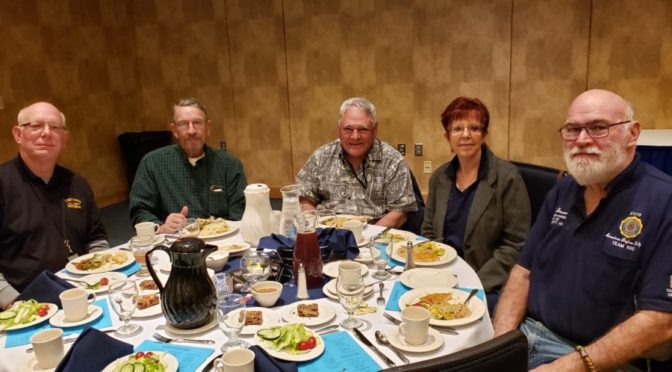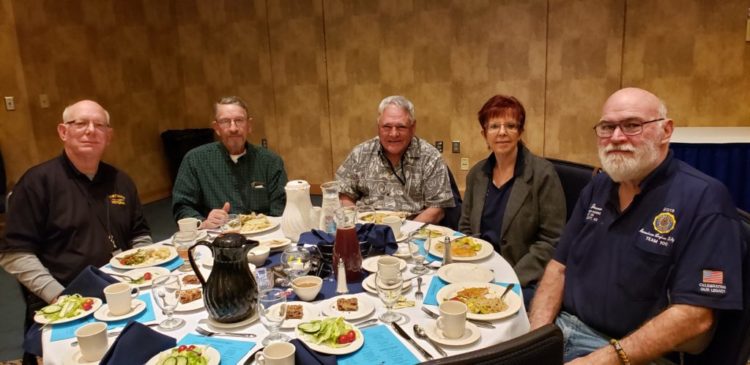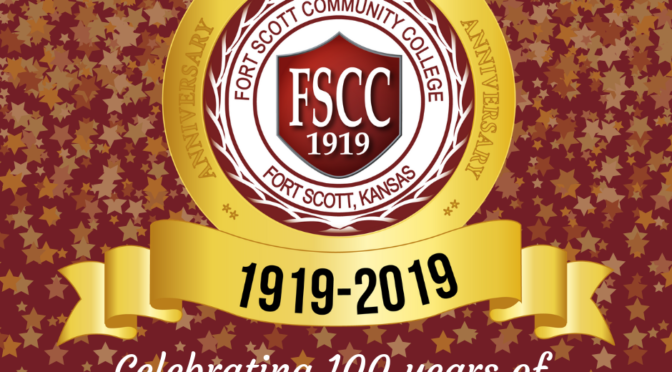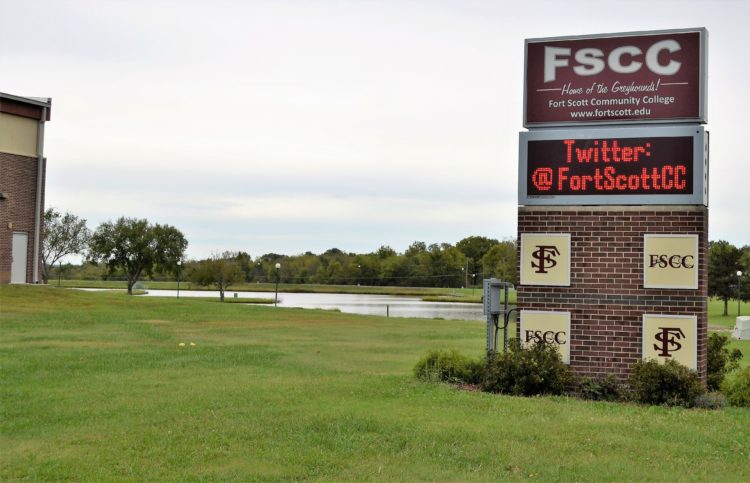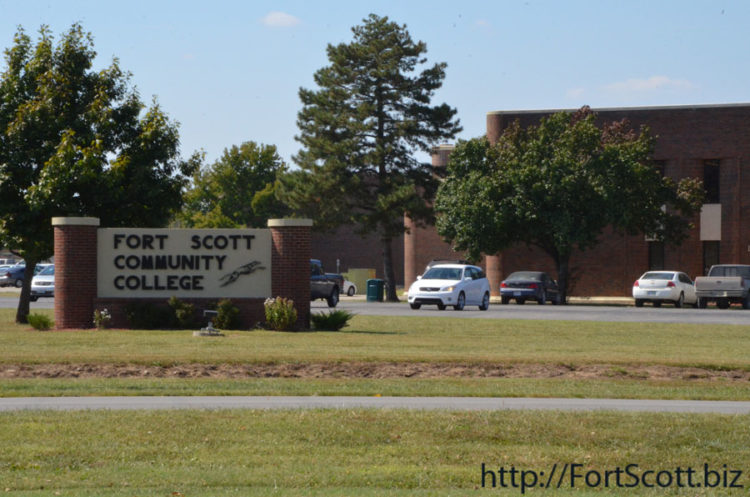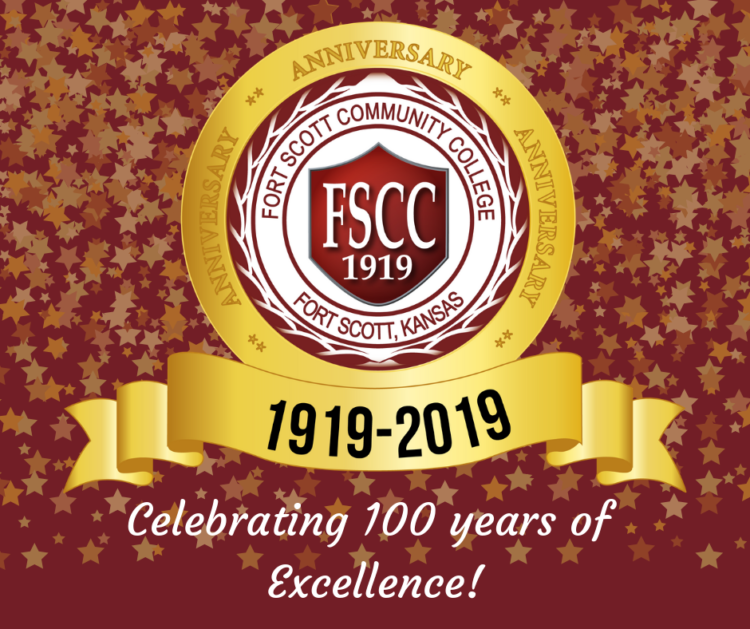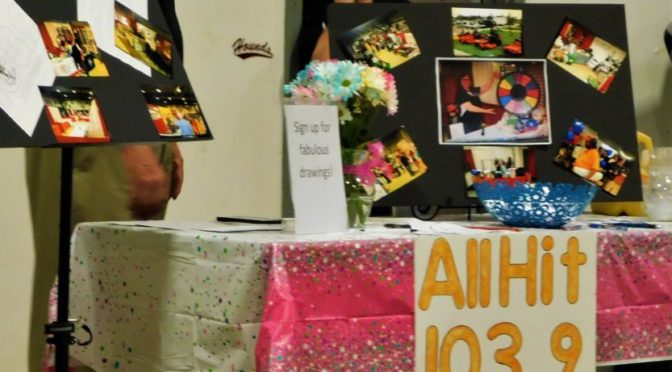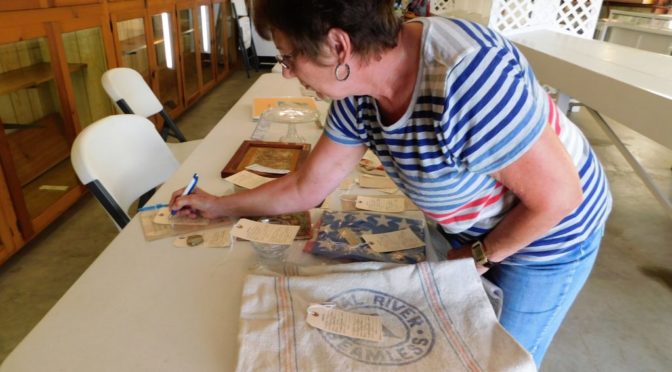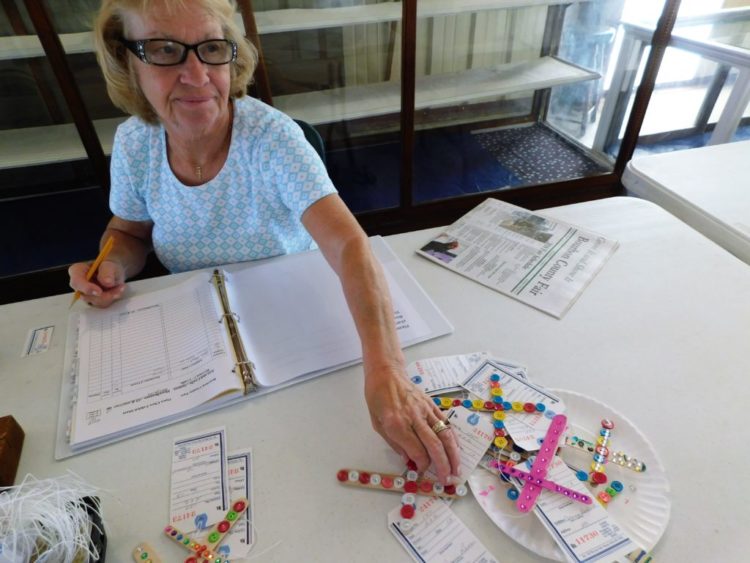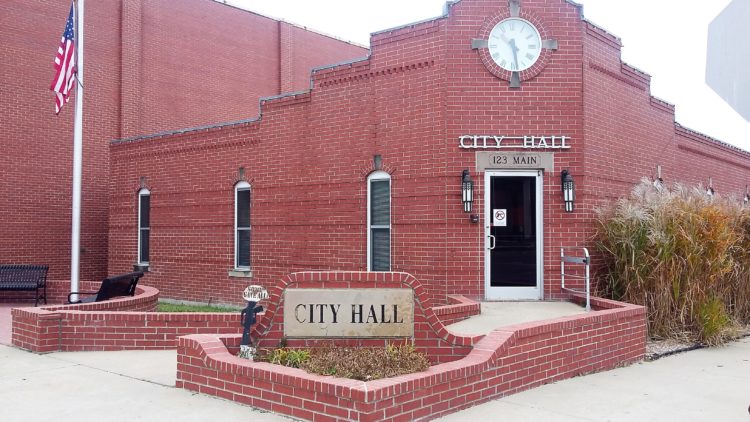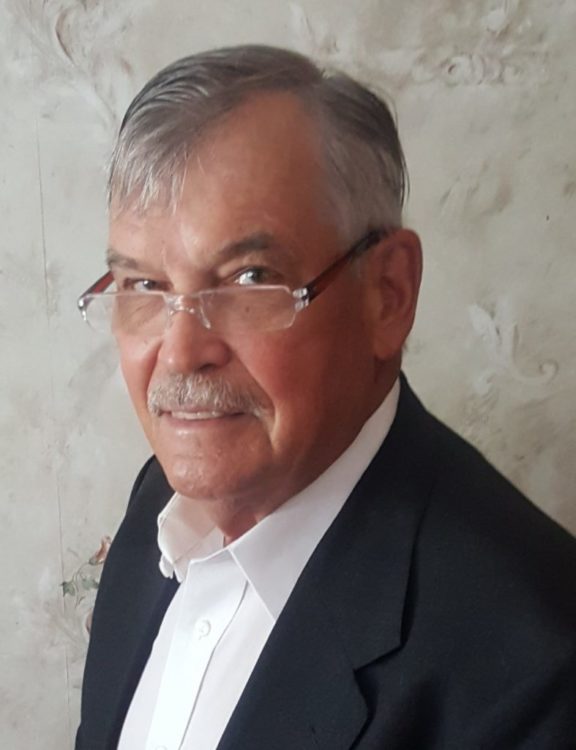This is first in a series of minutes of the Bourbon County Commission provided as a public service. They will be published as they become available.
To see previous minutes click:
http://bourboncountyks.org/index.php/commission-minutes-2019
March 28, 2019 Tuesday 9:00 am
The Bourbon County Commission met for a special meeting, the Commissioners, the County Counselor and the County Clerk were present.
Lynne made a motion to go into a 30 minute executive session for consultation with an attorney for the body or agency which would be deemed privileged in the attorney-client relationship, Nick seconded and all approved, (the session included the Commissioners, Justin Meeks and Shane Walker). After the session, Nick made a motion that Lynne Oharah be the contact person regarding the list of incomplete items at the new jail facility, Jeff seconded and all approved.
The Commissioners plan to discuss the jail facility and the list of incomplete items on April 2nd at 10:00 am.
At 10:19, Nick made a motion to adjourn, Jeff seconded and all approved.
THE BOARD OF COMMISSIONERS
OF BOURBON COUNTY, KANSAS
(ss) Lynne Oharah, Chairman
(ss) Jeff Fischer, Commissioner
(ss) Nick Ruhl, Commissioner
ATTEST:
Kendell Mason, Bourbon County Clerk
04/02/2019, Approved Date
March 26, 2019 Tuesday 9:00 am
The Bourbon County Commission met in open session with all three Commissioners and the County Clerk present.
Jody Hoener, Economic Development Director, met with the Commissioners; she asked permission to attend the Kansas Rural Opportunity Conference in Dodge City, she estimated this to cost up to $300 for the conference registration fee and hotel. Nick made a motion for her to attend, Jeff seconded and all approved.
Nick made a motion to go into a 15 minute executive session for personnel matters of individual non-elected personnel, Jeff seconded and all approved, (the session included the Commissioners and Jim Harris). No action was taken.
Nick asked Jim Harris to move the Patcher machine to the Industrial Park to do patching there.
Darrin Petrowsky with KDOT met with the Commissioners to give an update and proposed schedule for the 69 Highway project. He said in March they plan to finish the pavement removal, grade for Lime and CTB, prepare and place intersections at Calvary, Deer and Fern, begin Lime and possibly CTB, do signing and Polymer overlay. In April they plan to finish CTB, begin paving the mainline and begin shoulder work. In May they plan to finish paving the mainline, finish shoulder rock, do guardrail work, switch traffic to unrestricted the last week of May and do striping and rumble strips. In June they plan to remove the temporary crossovers, do clean up and do seeding. He said they should be opening Deer and Fern Road soon.
Mr. Petrowsky said Bourbon County will have several 1R maintenance projects, one of the 1R projects will be from the 59 Junction to the K7 Junction. He said they will be working on a bridge in Bourbon County. Jeff questioned how KDOT assigns the priority hard surface road projects; Darren said they have a pavement health system. He said they have a van that will drive every mile of the 10,000+ miles in Kansas; this van measures the roughness and cracking in the roads as well as other items, KDOT uses the report that is produced from the van measurements. When KDOT gets funding the wish list areas submitted for repairs by the local KDOT offices are driven by officials and the officials then recommend and approve some of the wish list projects.
Lynne made a motion that the Commissioners meet with Jim Harris and Norm Bowers to view the Industrial Park on March 27th and possible solutions to the road there, Jeff seconded and all approved.
Jeff discussed a culvert for Becky Howard; Jim Harris said the culvert is on the list.
Lynne discussed a pothole at 95th & 54 Highway; Jim Harris said this would be a KDOT issue.
Jim Harris reported that KCAMP gave Bourbon County $2,000 for the risk avoidance grant, this money helped purchase the grill guard and safety lights for the new R&B department pickup truck and the road temperature sensor.
Lynne made a motion to go into a 5 minute executive session for personnel matters of individual non-elected personnel, Nick seconded and all approved, (the session included the Commissioners). No action was taken.
Lynne made a motion to go into a 10 minute executive session for personnel matters of individual non-elected personnel, Nick seconded and all approved, (the session included the Commissioners and Jim Harris). No action was taken.
Alice Maffet with the SEK Multi Health Department presented a memorandum of Understanding for the SEK Multi County Health Department regarding ambulance service to the Commissioners for approval; Jeff made a motion that Lynne sign the document, Nick seconded and Lynne signed the document.
Nancy Van Etten briefly met with the Commissioners. She questioned how the Ambulance building was progressing; Nick said they are hanging the sheetrock this week and the building will likely be finished by April 15th. Nancy questioned the progress at the SEK Multi County Health Department; Jeff said they will probably move into the building May 1st.
Kevin Gleason met with the Commissioners; he said the road crew was doing a great job.
Jody Hoener met with the Commissioners; she asked permission to spend up to $150 for supplies for the Chamber of Commerce Coffee on March 28th; Lynne made a motion to spend up to $150 out of the Commission budget for supplies, Nick seconded and all approved.
Jody Hoener said she is on the board for the Sunflower Trail, she said the dues are $100 and asked for the Commissioners to vote to spend the $100; Lynne said he didn’t feel they needed to vote on this expense since it will be paid out of Economic Development.
Jody Hoener discussed the Farmers Market sign located at the Wall Street and the Old Fort entrance, she said the sign is faded and needed replaced. She said two bids have been provided to replace the sign; one for $200 (which is re-doing the sign that is there) and a bid for $400 (which would be a new metal sign); she asked if the Commissioners wanted to help fund a portion of the $400 sign to help promote shopping local. Jeff made a motion to support up to $200 for the sign for Economic Development, Nick seconded and all approved.
At 11:35, Lynne made a motion to break for lunch and reconvene at 1:30, Nick seconded and all approved.
Nick made a motion to go into a 10 minute executive session for personnel matters of individual non-elected personnel, Jeff seconded and all approved, (the session included the Commissioners, Jim Harris, Krista Goltra, Jody Hoener and Justin Meeks). No action was taken.
Nick made a motion to go into a 10 minute executive session for personnel matters of individual non-elected personnel, Jeff seconded and all approved, (the session included the Commissioners, Jim Harris, Krista Goltra, Jody Hoener and Justin Meeks). No action was taken.
Nick Ruhl said he had heard that Kansas Rock’s had poured a large slab of concrete to place a sign in the County right-of-way.
Lynne made a motion to go into a 30 minute executive session for consultation with an attorney for the body or agency which would be deemed privileged in the attorney-client relationship, Jeff seconded and all approved, (the session included the Commissioners and Justin Meeks). No action was taken.
Greg Schick met with the Commissioners; he said he had read in the newspaper where the County had waived the dump fees for the debris from the demolition of the Stout building, he asked if the County would consider waiving fees for a project he is doing on Wall Street (the old lumber yard buildings), the Commissioners said they waived the fees when the City of Fort Scott approached them. He questioned if they would be taking bids to tear down the building, the Commissioners did not know if they had taken bids. Mr. Schick said he had received zero help from the City of Fort Scott for his projects. Mr. Schick said he would like to use the road easement in an area on Musket Road; Justin Meeks said he would review this road and discuss this again next week.
Lynne made a motion to approve Resolution 10-19, a wage resolution adding the wages for an EMT 1, EMT 2 and a Paramedic for the Ambulance, Nick seconded and all approved.
Nick made a motion to go into a 5 minute executive session for consultation with an attorney for the body or agency which would be deemed privileged in the attorney-client relationship, Jeff seconded and all approved, (the session included the Commissioners and Justin Meeks). No action was taken.
Nick made a motion that all of the Commissioners attend the Chamber Coffee at the Courthouse on March 28th, Jeff seconded and all approved.
Nick left the meeting to continue working on the ambulance barn.
Jeff and Lynne reviewed a list of incomplete items at the Law Enforcement Center; Lynne planned to provide the list of items to Justin Meeks, Jeff Fischer and Nick Ruhl for input once compiled.
At 4:39, Lynne made a motion to adjourn and Jeff seconded, meeting adjourned.
THE BOARD OF COMMISSIONERS
OF BOURBON COUNTY, KANSAS
(ss) Lynne Oharah, Chairman
(ss) Jeff Fischer, Commissioner
(ss) Nick Ruhl, Commissioner
ATTEST:
Kendell Mason, Bourbon County Clerk
04/02/2019, Approved Date
